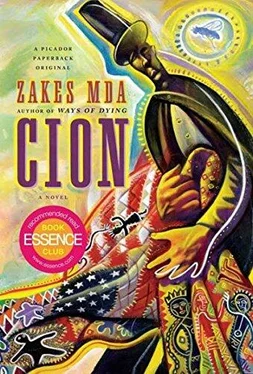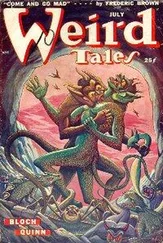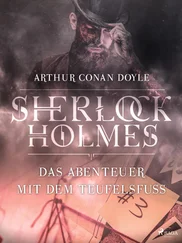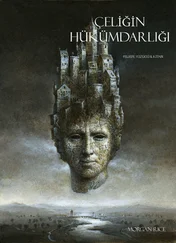These were the beautiful thoughts that occupied Abednego’s mind, not vengeance. The white man was not making sense, although Abednego suddenly felt ashamed that he had forgotten about Nicodemus while he established his new life in Tabler Town. But vengeance was not part of his makeup. He did not see how it would help his dead brother. Surely it would not bring him back to life. He doubted if his mother would have wanted him to commit such an act. To get rid of Quigley he promised him he was going to think seriously about it, and Quigley said that he was keen to help. He was still angry about what had been done to him and he had to take out that anger on someone.
Abednego heard for the first time from Quigley how the Abyssinian Queen died laughing and praising the Lord after the return of Massa Blue Fly. It was a good thing, thought Abednego, that she never knew that Nicodemus did not quite reach the Promised Land. She must have been surprised on reaching the Otherworld to find Nicodemus there, newly arrived as well. Or did the Abyssinian Queen arrive before Nicodemus? There was no way of knowing how long it took Massa Blue Fly to reach her.
As months went by a strong bond developed between Quigley and Abednego. They went hunting and fishing together. Sometimes they were brave enough to venture to Athens to watch college students play a new version of rounders called baseball. It was always dangerous to go to Athens because lurking behind the friendly face of a college town were the likes of William Tobias who were now resorting to abducting free blacks and taking them across the Ohio into slavery. Men like these were a law unto themselves. Since 1831 there were penalties for kidnapping free blacks, but that did not give any comfort to blacks because slave chasers were not deterred by such laws.
Abednego was the best man when Quigley married one of Harry Corbett’s daughters. People talked about the wedding for a long time, but not because it was particularly grand. On the contrary it was meant to be a quiet affair at the Methodist church. What people talked about was not how beautiful the bride looked, but how her uncle, Harry Corbett’s hothead brother, caused a commotion outside the church by preaching his own sermon denouncing what was happening in the church.
People generally dismissed the man as a rabid Indian nationalist who felt that the Negro had degraded and destroyed his Indian race by marrying into it, to the degree that it was no longer respected by other races — by which of course he meant by the whites. He also said that the Indian claim of the Tabler Town area as an ancestral land would be rejected by the state of Ohio on the basis of what he called mongrelization. But no one had thought that the man would also denounce a marriage between a daughter of the tribe and a white man. Was it because this particular white man identified more with the black people? Or did the man disburse his hatred equally without fear or favor? He had an audience too. Those citizens of Tabler Town who could not be accommodated in the small church had no choice but to listen to his sermon.
At the same time another sermon was being delivered in the church. Perhaps the minister thought it best to take advantage of the presence of people of color — who didn’t normally attend his church, but who had now gathered in great numbers for the wedding of this important community member — and preach a sermon on issues that had been bothering him. He was a liberal man, well-beloved by the colored community. So people gasped when he preached against the Underground Railroad. His grounds were that it worked against the attempt to keep the races separate in America. He emphasized that he was saying all this because he was a friend of the Negroes. It was in the interests of the Negro to keep the races apart. People knew that he supported the move started a decade or so before to send all black folks to Africa. He was active in collecting funds from the wealthier citizens and in staging fund-raising events to pay for their passages. If the Negroes married other races — be they races of European origin or Indian — they would see no need to return to their continent, and the continent would then be deprived of their skills and of the civilizing influence they would have on the hordes of savages still roaming naked in the jungles of that unfortunate continent.
Both the groom and his best man found the sermon disgusting, although it was not their first time to hear such ideas. They had read in newspaper articles where liberals — some of whom were even stationmasters of the Underground Railroad — were roundly condemning such communities as Tabler Town for promoting “the amalgamation between white and black races, which was not desirable and was not in the interests of the Negro.” What made Quigley mad was that the minister chose the occasion of his wedding to preach such garbage. It was obvious to him that the minister had agreed to solemnize a marriage between an Indian woman and a white man in order to use it as a platform to propagate his ideas. Or perhaps he approved of the “amalgamation” of whites and Indians but not of Africans and the other races. And he was saying all these things because of his brimming love for the black races of the earth.
Quigley felt that his wedding had been defiled and turned into a circus both by the uncle outside and the minister inside.
With the encouragement of his best man he went through the service with stoicism.

They had been inducted by Birdman. And for four years they had worked tirelessly as conductors of the Underground Railroad. They had crossed the Ohio River on many occasions to steal slaves on the other side. Or to assist those who had escaped up to the river to cross to freedom in skiffs. They had had close shaves with the law: decades-old slave laws stipulated that blacks were not permitted to reside in Ohio unless they could prove they were free. Abednego did not have any such proof. Nor did the countless fugitives they conducted to safety. In the very free state of Ohio it was a criminal offense to harbor blacks or to aid a fugitive. Once, Quigley had been kidnapped by a party from Stewart for the crime of aiding and abetting fugitives, and all in Tabler Town had been up in arms as a result. The Stewart folks had to release him. Slave hunters were fearful of Tabler Town as a result.
And now on this beautiful day here were Quigley and Abednego standing on the banks of the Ohio River at Gallipolis, looking helplessly as the steamboat took Birdman away. He had been captured in the woods in Meigs County. Quigley and Abednego suspected that William Tobias had something to do with it, although admittedly they had not heard of Tobias for some months, or even years. For some reason he was lying low. If it was not Tobias who captured their mentor, destroyed his old manumission papers that he used in Ohio to prove he was a legal black and dragged him to the steamboat in chains, then it was one or other of the slave hunters who were always lurking around, sniffing like bloodhounds and ready to pounce on any black they came across. They had taken to capturing free blacks to sell in Virginia or Kentucky. But most importantly, they were always on the lookout for Underground Railroad conductors, who were lucrative bounty. Everyone knew there was a big price on Birdman’s head. Even as Quigley and Abednego stood there, watching the steamboat sail away, shaking in anger, they knew that they were not safe at all for there was a two thousand dollar reward — money raised by plantation owners — for the assassination of the Underground Railroad operators.
The message came too late to them. They were working in their father-in-law’s orchard when a young rider came with the news that Birdman had been captured and was held hostage in a house in Athens. Without wasting time they took their guns and rode to Athens. They planned to invade the house and save their mentor. But they were too late. He was already being transported to Gallipolis. There was no time to go back to Tabler Town to warn their families that they would be away, perhaps for a number of days. In any event their wives and young children understood the nature of their work. They rode toward Gallipolis, hoping to catch the wagon transporting the captive even before it got to Pomeroy. They never did.
Читать дальше













